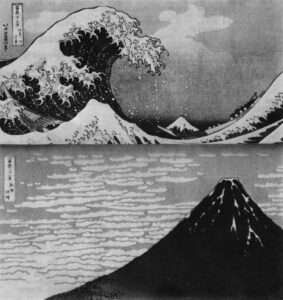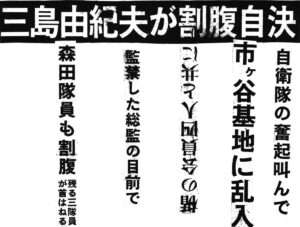Darrell Houston
- 1970
Fellowship Title:
- Japan's Youth
Fellowship Year:
- 1970
Triple Fare From the Madding Crowd
Tokyo – You begin by reverting to clichés, some of which are almost as old as Madame Butterfly herself: You, as a foreigner, are a guest in Japan. Further, you are an ambassador of America. And Tokyo’s 9,834 taxi drivers have got to live, too, you rationalize. They’ve got wives, kids, TV sets to pay off. Some work eighteen hours a day. Many of them sleep in their cabs. The pay is paltry, averaging around $100 a month. Numerous customers, as police files will verify, simply dash off into the sidewalk crush without bothering to pay the meter tab. Give them a break, you counsel your fellow expatriates, most of whom are confirmed Kamikazephobes. They aren’t all hellions on wheels, you say. Then, still aglow with ever-the-twain-shall-meet camaraderie, you hail a 130-yen cab near Tokyo’s Imperial Hotel. Grinning, the driver whips his orange Cedric sedan out of the blurring maw of traffic. He flicks a secret switch. An automatic door pops open and off you scoot. Nothing Kamikaze about that, was there? He stopped – half the

Dateline Seoul: Will Success Spoil the ROK?
Seoul– This is the Oriental Year of the Boar, and throughout the Far East the English-speaking punsters are having an absolute circus with that one. But here in Korea – no matter what the zodiacal charts decree – it always seems nowadays to be the Year of the Tiger. That statement might well ruffle the oracular dignity of the soothsayers who still ply their art within the gates of this 579-year-old capital. Yet, on the basis of national character alone, the analogy holds up. With a tenacity rarely equaled in today’s fiercely competitive marketplace, the Korean people have scratched and struggled their way from the chaos of war to a rising place in the international sun. The Koreans are sometimes called “the Irish of the Orient,” and their ready humor and even readier courage has been summoned into full play during their nation’s metamorphosis from battleground to burgeoning industrial prodigy. The people laughed a lot – especially at themselves – but the transformation was not easy. “They have pulled themselves up by their bootstraps
Mishima: The Shock Waves Continue
In the wake of the ritual suicide of Yukio Mishima, Japan’s leading novelist, a profitable – and at times macabre – cultural phenomenon has evolved. The Japanese, who are much given to instant labels, call it the “Mishima Boom.” It is an apt designation. Mishima posters flutter overhead on trains and subways. Magazine articles cover his life, literally, from the cradle to the blade. His books are selling like rice cakes, something that rarely happened during the author’s lifetime. A hara kiri film, starring Mishima, has enjoyed a lucrative revival. Nippon Columbia has issued a long-play record of him reading his own works. Thankfully, nothing quite as gauche as Mishima sweatshirts has appeared. But at least three Japanese youths, inspired no doubt by the novelist’s example, have tried to disembowel themselves in public. All three managed to thoroughly botch the job. As a further offshoot of this peculiarly Japanese obsession with Mishima memorabilia, a new intellectual parlor game bas been born. Its label might well be “Why Did Mishima Do It?” The game is a fascinating, if

Remember When You Could See Mt. Fuji?
– Hokusai “Now the Self is the state of being of all contingent beings. In so far as man pours libations and offers sacrifices, he is in the sphere of the gods; in so far as he recites the Veda he is in the sphere of the seers; in so far as he offers cake and water to the ancestors, in so far as he gives food and lodging to men, he is of the sphere of men. In so far as he finds grass and water for domestic animals, he is in the sphere of domestic animals, in so far as wild beasts and birds, even down to ants, find something to live on in his house, he is of their sphere.” – The Brihadaranyaka Upanishad. “ECOLOGY: Eco (oikos) meaning house (cf. “ecumenical”); housekeeping on Earth.” – Gary Snyder, “Earth House Hold” “…Everything we have thought about man’s welfare needs to be rethought…Let poetry and Bushmen lead the way in a great leap forward….” – Ibid. “Why don’t they just hire planes and spray

The Mishima Incident: “A Wasteful Way to Die”
“Once an action is launched, it cannot stop until it comes to a logical end…Once a Japanese sword is drawn from its scabbard, it cannot return until it completes its mission of cutting something or someone…” – From Yukio Mishima’s recent book, Kodogaku Nyumon (“Guide to Actionism.”) Yukio Mishima commits suicide – Headlines announcing the hara-kiri suicide of Japan’s leading younger novelists Yukio Mishima. Tokyo – It happened while Prime Minister Eisaku Sato, a few blocks away, was addressing the opening of an extraordinary session of the Diet. “Despite her economic power,” Sato said, after welcoming seven newly-elected Dietmen from Okinawa, “Japan will never again become a military power….” At that moment, in the Eastern Corps Headquarters of the Japan Ground Self-Defense Force In Ichigaya, novelist Yukio Mishima and four members of his Tate-no-Kai(Society of the Shield) army were enacting a Samurai drama that was to shake not only Japan but the rest of the civilized world as well. When the scene had played Its gruesome course, Mishima and one of his young ultra-rightist
